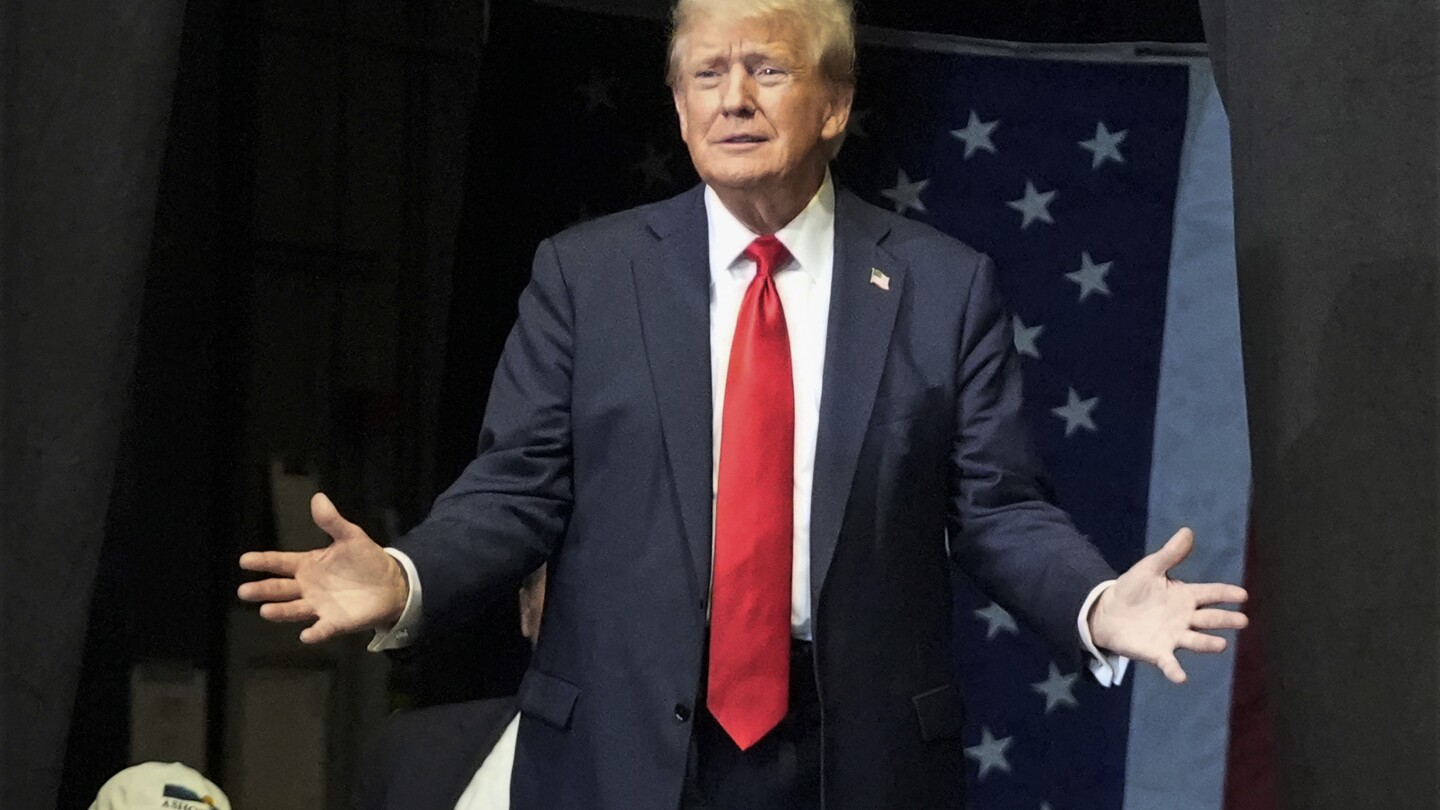Donald Trump was once a cheerleader of publicizing hacked materials. “Russia, if you’re listening,” Trump said during a press conference in his 2016 presidential run, when Hillary Clinton’s deleted personal emails were a hot topic, “I hope you are able to find the 30,000 emails that are missing.”
“I think you will probably be rewarded mightily by our press,” he said back then.
That changed when Trump’s latest presidential campaign declared this weekend it had been hacked by Iran. “Any media or news outlet reprinting documents or internal communications are doing the bidding of America’s enemies and doing exactly what they want,” Steven Cheung, the campaign’s communications director, said in a statement on Saturday announcing that the campaign had been hacked.
The campaign has not responded to questions about why its view on hacking changed, including a query on Monday from The Associated Press. But its new position is a striking change from 2016, when Trump heartily embraced the Russian hacking of his opponent Clinton’s aides and the Democratic National Committee.
The current hack, so far, is murky.
On Friday, Microsoft issued a report stating that Iranian hackers tried to penetrate the account of an official with one of the presidential campaigns, but did not disclose additional details. On Saturday, the Trump campaign announced it had been hacked, though it also did not identify the individual whose account was breached. It did so after Politico said it had been contacted by an unknown source peddling what was represented to be internal documents from the campaign.
Iran has denied being involved in any hack. The U.S. government has not confirmed that any breach has occurred.
In 2016, intelligence officials said Russian hackers obtained thousands of emails from the Democratic National Committee, the Democratic Congressional Campaign Committee, and the personal account of Clinton’s campaign chairman, John Podesta. The initial batches came out in the summer, as Clinton clinched the Democratic nomination.
That was when Trump encouraged Russia to find his rival’s personal emails. He later argued he was joking.
The hacked material was released through third parties, including the online site Wikileaks, which began to publish daily tranches of Democratic documents in October, just after a videotape of Trump bragging about how he’d sexually assaulted women was disclosed.
Trump routinely touted the Democratic leaks at his campaign rallies, including declaring at one: “I love Wikileaks.”
The leaked documents received ample news coverage, and Kathleen Hall Jamieson, a communications professor at the University of Pennsylvania who wrote the book “Cyberwar” on the 2016 hacking, said she found that coverage was what won the election for Trump.
“2016 was not an instance of which journalists should be proud,” Jamieson said in an interview Monday, adding that the greatest question is how news organizations apply their standards to whatever material finds itself in the public domain.
“That Trump is saying what is electorally convenient is not a surprise,” Jamieson said. “This is not a person for whom inconsistency is a concern.”
What to know about the 2024 Election
- Today’s news: Follow live updates from the campaign trail from the AP.
- Ground Game: Sign up for AP’s weekly politics newsletter to get it in your inbox every Monday.
- AP’s Role: The Associated Press is the most trusted source of information on election night, with a history of accuracy dating to 1848. Learn more.
Nick Merrill was a spokesman for Clinton’s 2016 campaign and pushed back against publication of the hacked documents at the time. On Monday, he noted the Trump campaign was in a similar role this time.
“In addition to the characteristic hypocrisy, they just spent three weeks trying to explain they’re not weird,” Merrill said via text. “And I’d imagine that sharing their internal correspondence is going to help dispel that notion.”
Asked if that meant he now thought hacked materials should be published, Merrill replied: “A precedent has been set here. I’m not passing judgment on it.”

